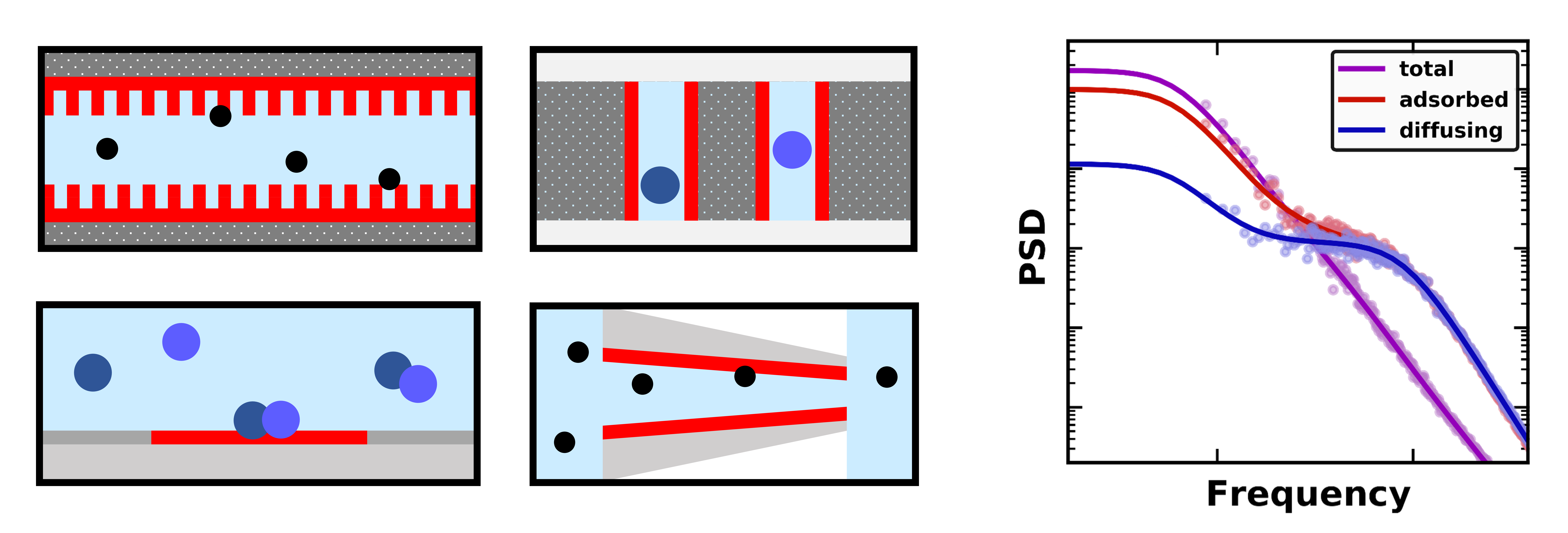Research
Current research centres on three key topics:
1. Statistical mechanics of complex fluids

The central goal of statistical mechanics is to understand how phenomena at large scales emerges from the dynamics and interactions of individual particles. For many decades, colloidal suspensions have sat at the forefront of experimental work in this area as here, unlike in molecular systems, particles can be synthesised with carefully controlled properties and directly visualised and manipulated in microscopy experiments. We use colloidal models to explore varied behaviour; from emergent phenomena arising from the very simplest interactions at equilibrium, to complex non-equilibrium effects. Our experiments enable rigorous and direct tests of theory and simulation approaches, and we collaborate closely with researchers in these areas to test and guide these modelling approaches.
Key Publications: Mackay et al., Phys. Rev. X, (2024), Thorneywork et al. Phys. Rev. Lett, (2017)

2. Transport in nano and microfluidics

Controlling the transport of ions, molecules and macromolecules through confining pores and channels is central in varied natural and technological settings. For example, in living systems, biological protein pores enable highly efficient and selective transport across cell membranes, whilst synthetic porous materials find application in devices for filtration, clean energy generation, biomolecular sensing and the new field of iontronics. Such transport processes are governed by a complex interplay of physical and chemical factors and we work to understand this using highly controlled microfluidic and nanofluidic experiments. Our goal is to achieve a comprehensive understanding of how to generate desired transport characteristics from the molecular level up so that we can realise the potential of porous materials to solve current societal challenges.
Key Publications: Thorneywork et al., Sc. Adv. (2020), Knowles et al., Nanotechnology (2019)

3. Adsorption Phenomena

Adsorption of molecular species at interfaces is a process that finds application in many scenarios, from heterogeneous catalysis to sensing devices and the development of films and coatings. Particularly complex is the adsorption process for polymers, as a single polymer molecule may adopt multiple conformations at a surface. We use novel experimental and theoretical approaches to quantitatively understand adsorption at the single polymer level. In particular, our goal is to develop tools that extract adsorption parameters from apparently random fluctuations in experimental data that can be applied in diverse settings.
Key publications: Drummond Young et al., arXiv (2025), Knowles et al., Phys. Rev. Lett. (2022)


